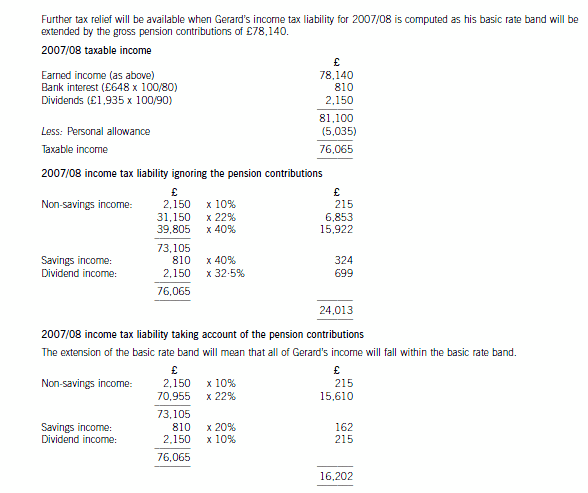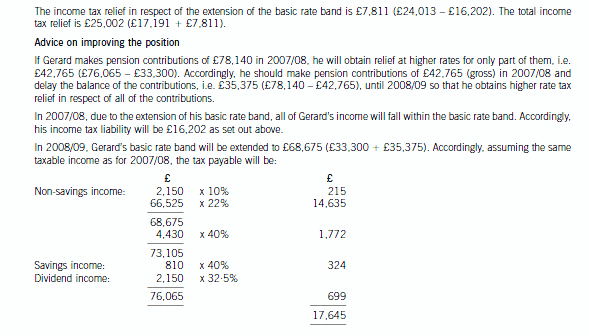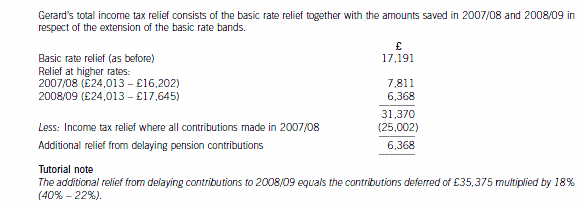如果你是台湾考生,教你几招,轻松让你在ACCA考试中保持专注!
发布时间:2020-01-10
不管是职场,生活,你都不可能在一长段时间内只专注一件事。而在面对ACCA考试有那么多门考试科目,怎样才能不手忙脚乱呢?因此,51题库考试学习网在这里教大家如何在考场中能够高度专注的考试,不会被其他琐事影响,从而影响考试成绩的小技巧。
首先,我们要消除一个思维误区。
人是不能进行真正的“多线程工作”的。你的大脑不可能像电脑那样,开着好几个后台,例如:一边放着音乐,一边让你聊微信,一边下载电影
你必须在某个时间段只专注一件事。
回想一下,你复习高数的时候,想着A考,看似是一心二用,但实际上你是复习了一会儿高数,然后想了一会儿A考,你努力把神思拉回来,又复习了一会儿高数,然后思维又切换到A考……
实际上你的大脑在某个时间点只集中在一件事情上,但因为它的重点在不停切换,造成了你大脑一片混沌,手忙脚乱的错觉。
有一个小实验是这样的:
所以复习效率低,也是因为你的思维在不停切换,浪费了大量不必要的时间。并且忙了大半天也没有任何一科有明显进展,这时沮丧挫败灰心自责一系列负面情绪都扑过来了,会让学习陷入恶性循环。
那到底要如何从容面对考试呢?
多线程任务,不是同时做多件事,而是将一个时间段划分好几份,来分配给不同任务。所以多线程学习的核心其实是任务管理。
我们只需要确定哪个时间段要做哪个任务,然后保证一段时间只做一件事。
比如上午集中复习高数,下午集中复习思修,晚上集中复习A考,甚至,也可以先集中复习期末,再专心复习A考。
这里51题库考试学习网提供几个方法:
1. 对时间进行规划。
比如3天以后要考思修,那么你就需要规划这3天,你每天要花多少时间来复(yu)习(xi)思修。你将每一科的计划按紧急程度列出来,写下每天每一科需要进行到什么进度。
这时你就有了每天的小目标。
2. 每天总结自己的进度条更新到哪里了。
建议还是要每天列出to do list,将目标尽量细化,然后在完成每个小任务之后打个勾。
这个习惯看上去非常鸡肋没用,其实超级有必要。这就像你在电脑上完成了一项工作,然后点击了保存。这样的仪式感会提醒我们,让我们的大脑更清楚:这件事已经做完了,可以松一口气不用再想它了。
3. 不一定要先做最紧急的事,先做最重要的事。
甚至,如果你的大脑坚持要每五分钟就从高数切换到思修,那建议你先背一会儿思修,将进度条拉长一点,消除你的焦虑以后再去安心刷高数。
4. 接受自己的不完美。
考A的同学一般都比较有上进心,对自己要求比较高。
一方面这是好事,能让你不断督促自己努力,进步;一方面这样的性格也容易让你苛责自己,产生自责感。所以经常会有同学,一遇到没有头绪的时候就开始心态崩坏,结局通常是越做越糟。
这里学姐要说的就是,偶尔发挥失常,进入状态困难是每个人都会出现的状况。如果遇到这种情况,不要轻易否定自己的能力。首先我们要相信自己可以应对,这样我们才能真正做到有条理,少出错。
如何保持长时间的专注?
除了手忙脚乱之外,很多同学还有一个问题,就是备考的时候忍不住玩手机。看书五分钟,聊八卦两小时,这种现象实在非常普遍。
很多狠人会采取最简单粗暴的方法:不带手机去图书馆。
但是如果我要查单词,信息检索,甚至要联络别人怎么办?况且以后大家工作要提高效率,也不可能使用关掉手机拒绝诱惑这种方法。
所以我们要如何在干扰的情况下,做到长时间的专注呢?
(1)先从能够快速集中注意力的事情做起。
备考时,每天在备考前抄一遍字帖。
一方面,这样难度不高又不那么吸引注意力的工作会让我的心静下来
ACCAer们也可以想想有什么类似的事情是可以让自己平静专注下来,又不容易沉迷的。在每天复习前先做一遍这件事,有一个良好的开端。
(2)尽量让手参与进来。
如果实在很难集中注意力,就采取抄书的方式。因为光看书,你很容易就跳过内容,尤其是那些很难的重点。而手写的速度慢,并且需要输出,所以你的大脑一定会对信息进行处理的。
但这个方法只在你发现心思非常浮躁的时候有效,大多数时候,你还是需要一边理解一边输出。
这时候就不要只是把内容照抄下来而已了。你需要做的,就是将书本上的重点语句换一种表达方式写下来。这时候你的大脑才会去主动思考。
此外,画思维导图也是很好的方法,寻找每个知识点之间的联系,并对下一节知识内容进行预期。
最后,提醒大家要适当地拒绝舒适。
下面小编为大家准备了 ACCA考试 的相关考题,供大家学习参考。
(c) At a recent meeting of the board of directors, the managing director of Envico Ltd said that he considered it
essential to be able to assess the ‘value for money’ of each seminar. He suggested that the quality of the speakers
and the comfort of the seminar rooms were two assessment criteria that should be used in order to assess the
‘value for money’ of each seminar.
Required:
Discuss SIX separate and distinct assessment criteria (including those suggested by the managing director),
that would enable the management of Envico Ltd to assess the ‘value for money’ of each seminar.
(6 marks)
(c) The following are six separate and distinct assessment criteria (including those suggested by the managing director), that
would enable the management of Envico Ltd to assess the ‘value for money’ of each seminar. The assessment criteria are
presented as questions that would comprise the contents of a questionnaire but other presentations would have been equally
acceptable.
(1) Did the course meet your objectives?
‘Value for money’ may, in part, be assessed by reference to the ‘effectiveness’ of the service provision. Effectiveness may
be viewed in this context as meeting the objectives of attendees. All attendees have similar but varying objectives and
hence it is vital that Envico Ltd meets the objectives of all attendees if seminars are to constitute ‘value for money’.
(2) How would you rate the quality of the speakers?
A primary resource of Envico Ltd is its speakers and thus it is important to gauge how they were perceived to perform
by the attendees.
(3) How would you rate comfort, cleanliness and facilities of the seminar rooms?
Again, a principal resource, which is consumed when providing the service, is the seminar room and the facilities
contained within it. Attendees will find a clean and ergonomically designed room more conducive for education and
training activities.
(4) How would you assess the quality of the course materials?
Since Envico Ltd undertakes the provision of educational and training seminars then the quality of course materials
provided assumes critical significance as they represent the ‘raison d’être’ of Envico Ltd. If they are perceived to be of
high quality they may act as a good advertisement for the company. Conversely, poor quality course materials will cause
Envico Ltd to be perceived poorly.
(5) How strongly would you recommend Envico courses to friends and colleagues?
This is a very important consideration since ‘word of mouth’ may represent the best means of advertising the services
provided by Envico Ltd and is indicative of whether attendees consider that they have received ‘value for money’ from
Envico Ltd.
(6) Do you consider that you could have achieved your objectives in attending the course in a more expedient manner? If
so, please detail below.
This question acknowledges that the time of attendees is a scarce resource and hence there may well be an opportunity
cost in attending seminars in addition to the explicit costs such as course fees, travel and subsistence costs etc. It is
essential that Envico Ltd is flexible in its approach to meeting the needs of clients where attendance at seminars is either
impracticable or undesirable. Perhaps a series of interactive CDs and/or video tuition may be more appropriate in certain
instances.
(c) Calculate and explain the amount of income tax relief that Gerard will obtain in respect of the pension
contributions he proposes to make in the tax year 2007/08 and contrast this with how his position could be
improved by delaying some of the contributions that he could have made in 2007/08 until 2008/09. You
should include relevant supporting calculations and quantify the additional tax savings arising as a result of
your advice.
You should ignore the proposed changes to the bonus scheme for this part of this question and assume that
Gerard’s income will not change in 2008/09. (12 marks)




3 Palm plc recently acquired 100% of the ordinary share capital of Nikau Ltd from Facet Ltd. Palm plc intends to use
Nikau Ltd to develop a new product range, under the name ‘Project Sabal’. Nikau Ltd owns shares in a non-UK
resident company, Date Inc.
The following information has been extracted from client files and from a meeting with the Finance Director of Palm
plc.
Palm plc:
– Has more than 40 wholly owned subsidiaries such that all group companies pay corporation tax at 30%.
– All group companies prepare accounts to 31 March.
– Acquired Nikau Ltd on 1 November 2007 from Facet Ltd, an unrelated company.
Nikau Ltd:
– UK resident company that manufactures domestic electronic appliances for sale in the European Union (EU).
– Large enterprise for the purposes of the enhanced relief available for research and development expenditure.
– Trading losses brought forward as at 1 April 2007 of £195,700.
– Budgeted taxable trading profit of £360,000 for the year ending 31 March 2008 before taking account of ‘Project
Sabal’.
– Dividend income of £38,200 will be received in the year ending 31 March 2008 in respect of the shares in Date
Inc.
‘Project Sabal’:
– Development of a range of electronic appliances, for sale in North America.
– Project Sabal will represent a significant advance in the technology of domestic appliances.
– Nikau Ltd will spend £70,000 on staffing costs and consumables researching and developing the necessary
technology between now and 31 March 2008. Further costs will be incurred in the following year.
– Sales to North America will commence in 2009 and are expected to generate significant profits from that year.
Shares in Date Inc:
– Nikau Ltd owns 35% of the ordinary share capital of Date Inc.
– The shares were purchased from Facet Ltd on 1 June 2003 for their market value of £338,000.
– The sale was a no gain, no loss transfer for the purposes of corporation tax.
– Facet Ltd purchased the shares in Date Inc on 1 March 1994 for £137,000.
Date Inc:
– A controlled foreign company resident in the country of Palladia.
– Annual chargeable profits arising out of property investment activities are approximately £120,000, of which
approximately £115,000 is distributed to its shareholders each year.
The tax system in Palladia:
– No taxes on income or capital profits.
– 4% withholding tax on dividends paid to shareholders resident outside Palladia.
Required:
(a) Prepare detailed explanatory notes, including relevant supporting calculations, on the effect of the following
issues on the amount of corporation tax payable by Nikau Ltd for the year ending 31 March 2008.
(i) The costs of developing ‘Project Sabal’ and the significant commercial changes to the company’s
activities arising out of its implementation. (8 marks)
(a) Nikau Ltd – Effect on corporation tax payable for the year ending 31 March 2008
(i) Project Sabal
Research and development expenditure
The expenditure incurred in respect of research and development will give rise to an enhanced deduction for the
purposes of computing the taxable trading profits of Nikau Ltd. The enhanced deduction is 125% of the qualifying
expenditure as Nikau Ltd is a large enterprise for this purpose.
The expenditure will reduce the profits chargeable to corporation tax of Nikau Ltd by £87,500 (£70,000 x 1·25) and
its corporation tax liability by £26,250 (£87,500 x 30%).
The budgeted expenditure will qualify for the enhanced deduction because it appears to satisfy the following conditions.
– It is likely to qualify as research and development expenditure within generally accepted accounting principles as
it will result in new technical knowledge and the production of a substantially improved device for use in the
industry.
– It exceeds £10,000 in Nikau Ltd’s accounting period.
– It relates to staff costs, consumable items or other qualifying expenditure as opposed to capital items.
– It will result in further trading activities for Nikau Ltd.
Use of brought forward trading losses
The development of products for the North American market is likely to represent a major change in the nature and
conduct of the trade of Nikau Ltd. This is because the company is developing new products and intends to sell them in
a new market. It is a major change as sales to North America are expected to generate significant additional profits.
Because this change will occur within three years of the change in the ownership of Nikau Ltd on 1 November 2007,
any trading losses arising prior to that date cannot be carried forward beyond that date.
Accordingly, the trading losses brought forward may only be offset against £158,958 ((£360,000 – £87,500) x 7/12)
of the company’s trading profits for the year. The remainder of the trading losses £36,742 (£195,700 – £158,958) will
be lost resulting in lost tax relief of £11,023 (£36,742 x 30%).
Tutorial note
The profits for the year ending 31 March 2008 will be apportioned to the periods pre and post 1 November 2007 on
either a time basis or some other basis that is just and reasonable.
3 Mary Hobbes joined the board of Rosh and Company, a large retailer, as finance director earlier this year. Whilst she
was glad to have finally been given the chance to become finance director after several years as a financial
accountant, she also quickly realised that the new appointment would offer her a lot of challenges. In the first board
meeting, she realised that not only was she the only woman but she was also the youngest by many years.
Rosh was established almost 100 years ago. Members of the Rosh family have occupied senior board positions since
the outset and even after the company’s flotation 20 years ago a member of the Rosh family has either been executive
chairman or chief executive. The current longstanding chairman, Timothy Rosh, has already prepared his slightly
younger brother, Geoffrey (also a longstanding member of the board) to succeed him in two years’ time when he plans
to retire. The Rosh family, who still own 40% of the shares, consider it their right to occupy the most senior positions
in the company so have never been very active in external recruitment. They only appointed Mary because they felt
they needed a qualified accountant on the board to deal with changes in international financial reporting standards.
Several former executive members have been recruited as non-executives immediately after they retired from full-time
service. A recent death, however, has reduced the number of non-executive directors to two. These sit alongside an
executive board of seven that, apart from Mary, have all been in post for over ten years.
Mary noted that board meetings very rarely contain any significant discussion of strategy and never involve any debate
or disagreement. When she asked why this was, she was told that the directors had all known each other for so long
that they knew how each other thought. All of the other directors came from similar backgrounds, she was told, and
had worked for the company for so long that they all knew what was ‘best’ for the company in any given situation.
Mary observed that notes on strategy were not presented at board meetings and she asked Timothy Rosh whether the
existing board was fully equipped to formulate strategy in the changing world of retailing. She did not receive a reply.
Required:
(a) Explain ‘agency’ in the context of corporate governance and criticise the governance arrangements of Rosh
and Company. (12 marks)
(a) Defining and explaining agency
Agency is defined in relation to a principal. A principal appoints an agent to act on his or her behalf. In the case of corporate
governance, the principal is a shareholder in a joint stock company and the agents (that have an agency relationship with
principals) are the directors. The directors remain accountable to the principals for the stewardship of their investment in the
company. In the case of Rosh, 60% of the shares are owned by shareholders external to the Rosh family and the board has
agency responsibility to those shareholders.
Criticisms of Rosh’s CG arrangements
The corporate governance arrangements at Rosh and Company are far from ideal. Five points can be made based on the
evidence in the case.
There are several issues associated with the non-executive directors (NEDs) at Rosh. It is doubtful whether two NEDs are
enough to bring sufficient scrutiny to the executive board. Some corporate governance codes require half of the board of larger
companies to be non-executive and Rosh would clearly be in breach of such a requirement. Perhaps of equal concern, there
is significant doubt over the independence of the current NEDs as they were recruited from retired executive members of the
board and presumably have relationships with existing executives going back many years. Some corporate governance codes
(such as the UK Combined Code) specify that NEDs should not have worked for the company within the last five years. Again,
Rosh would be in breach of this provision.
Succession planning for senior positions in the company seems to be based on Rosh family membership rather than any
meritocratic approach to appointments (there doesn’t appear to be a nominations committee). Whilst this may have been
acceptable before the flotation when the Rosh family owned all of the shares, the flotation introduced an important need for
external scrutiny of this arrangement. The lack of NED independence makes this difficult.
There is a poor (very narrow) diversity of backgrounds among board members. Whilst diversity can bring increased conflict,
it is generally assumed that it can also stimulate discussion and debate that is often helpful.
There is a somewhat entrenched executive board and Mary is the first new appointment to the board in many years (and is
the first woman). Whilst experience is very important on a board, the appointment of new members, in addition to seeding
the board with talent for the future, can also bring fresh ideas and helpful scrutiny of existing policies.
There is no discussion of strategy and there is evidence of a lack of preparation of strategic notes to the board. The assumption
seems to be that the ‘best’ option is obvious and so there is no need for discussion and debate. Procedures for preparing
briefing notes on strategy for board meetings appear to be absent. Most corporate governance codes place the discussion and
setting of strategy as a high priority for boards and Rosh would be in breach of such a provision.
There is no evidence of training for Mary to facilitate her introduction into the organisation and its systems. Thorough training
of new members and ongoing professional development of existing members is an important component of good governance.
声明:本文内容由互联网用户自发贡献自行上传,本网站不拥有所有权,未作人工编辑处理,也不承担相关法律责任。如果您发现有涉嫌版权的内容,欢迎发送邮件至:contact@51tk.com 进行举报,并提供相关证据,工作人员会在5个工作日内联系你,一经查实,本站将立刻删除涉嫌侵权内容。
- 2020-01-10
- 2020-04-23
- 2020-05-03
- 2020-02-02
- 2020-04-23
- 2020-01-10
- 2020-05-16
- 2021-02-14
- 2020-04-21
- 2020-01-10
- 2020-01-09
- 2020-01-10
- 2020-01-10
- 2020-03-18
- 2020-02-05
- 2020-02-06
- 2020-01-31
- 2020-03-21
- 2020-04-18
- 2020-04-11
- 2020-01-10
- 2020-05-17
- 2020-03-31
- 2020-02-01
- 2020-02-06
- 2007-05-15
- 2020-01-09
- 2020-01-10
- 2020-02-19
- 2019-12-27